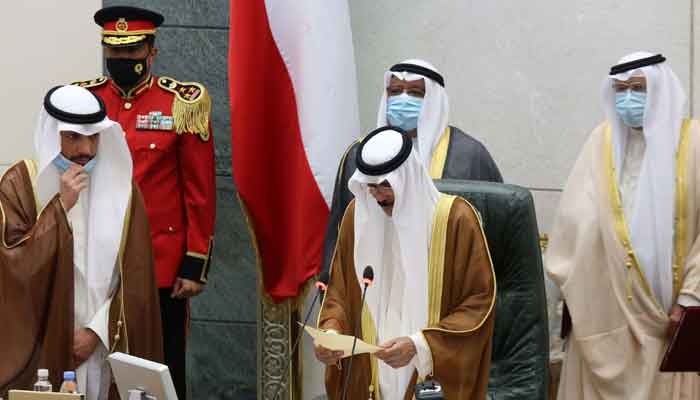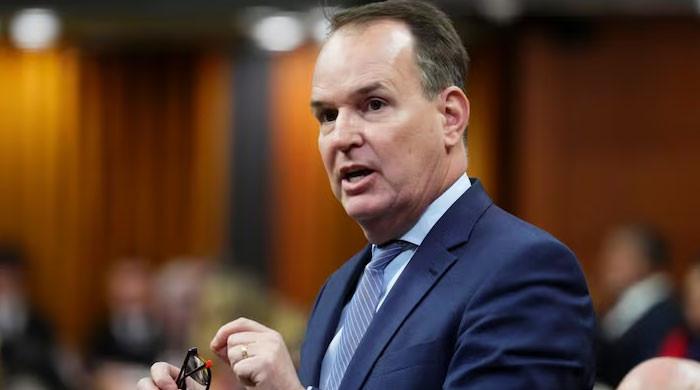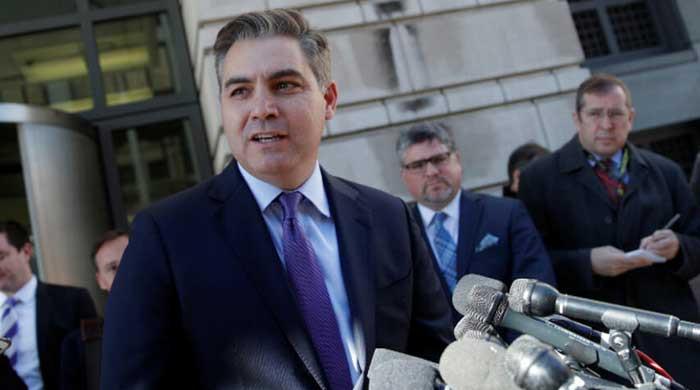Sheikh Nawaf al-Ahmad Al-Sabah sworn in as Kuwait's new emir
Sheikh Nawaf has served as defence minister when Iraqi troops rolled into the oil-rich emirate in 1990
September 30, 2020

Sheikh Nawaf al-Ahmad Al-Sabah was on Wednesday sworn in as Kuwait’s new emir after the death of his half-brother, the late ruler Sheikh Sabah al-Ahmad Al-Sabah who died in the US at the age of 91.
Sheikh Nawaf was visibly emotional as he addressed the National Assembly a day after the death of the emir, an acclaimed diplomat and mediator who ruled for 14 years.
"The precious confidence that the people of Kuwait have entrusted in us will be guarded with our lives," the 83-year-old said after taking the oath of office.
He pledged to "serve the nation" in the address before lawmakers, who sat socially distanced and in masks, in line with coronavirus precautions.
The remains of Sheikh Sabah al-Ahmad Al-Sabah are expected to arrive in Kuwait City later Wednesday, on a flight from Minnesota where he had been undergoing treatment in hospital since July.
According to the royal court, the funeral will be "restricted to the emir's relatives" – a move likely designed to avoid large crowds amid the coronavirus pandemic. The country has already begun a 40-day period of national mourning.
Sheikh Sabah earned a reputation as a shrewd, unshakeable leader who helped steer his country through the 1990 Iraqi invasion, crashes in global oil markets and upheavals in parliament and on the streets.
World leaders and Kuwaitis alike have hailed the legacy of the late emir, the architect of the nation's modern foreign policy and mediator in some of the worst crises to grip the Gulf.
Read more: Emir of Kuwait Sheikh Sabah dies at 91
"This man was the safety valve of the Arab world, not just for Kuwait," Bandar al-Dahani, a Kuwaiti citizen, told AFP.
"God willing, that goodness will be in Crown Prince Sheikh Nawaf and he will follow the emir's path."
Generational transition looms
Sheikh Nawaf, who has held high office for decades, takes over with Kuwait facing the repercussions of the coronavirus crisis, which triggered a sharp decline in oil prices and severe economic consequences for Gulf states.
The elder statesman, who was named heir apparent in 2006, served as defence minister when Iraqi troops rolled into the oil-rich emirate in 1990, and also as interior minister in the face of challenges from militants.
The new leader is popular within the ruling Al-Sabah family and is reported to have been a consensus choice for the ruler. He also enjoys a reputation for modesty and has largely maintained a low profile.
Major policy changes are not expected during his reign, even after the Gulf underwent a seismic shift with Kuwait's neighbours, the UAE and Bahrain, opting to establish relations with Israel.
Normalisation with the Jewish state is highly unpopular among the Kuwaiti public, which largely supports the Arab world's historic position of demanding a resolution of the Palestinian cause before giving diplomatic concessions to Israel.
Despite expectations for a smooth succession, there could be more spirited debate over who the new crown prince should be.
Kuwait's constitution stipulates that the ruler should be a descendant of the nation's founder, Mubarak al-Sabah, but the throne has alternated between the descendants of his sons, Salem and Jaber, for four decades.
Contestants for the newly vacated role of crown prince include Sheikh Sabah's son and former deputy prime minister Nasser Sabah al-Ahmed al-Sabah, a Kuwaiti political heavyweight.
"Sheikh Nawaf al-Ahmed should be viewed more as a caretaker than as a watershed new leader," said Cinzia Bianco, a research fellow at the European Council on Foreign Relations.











